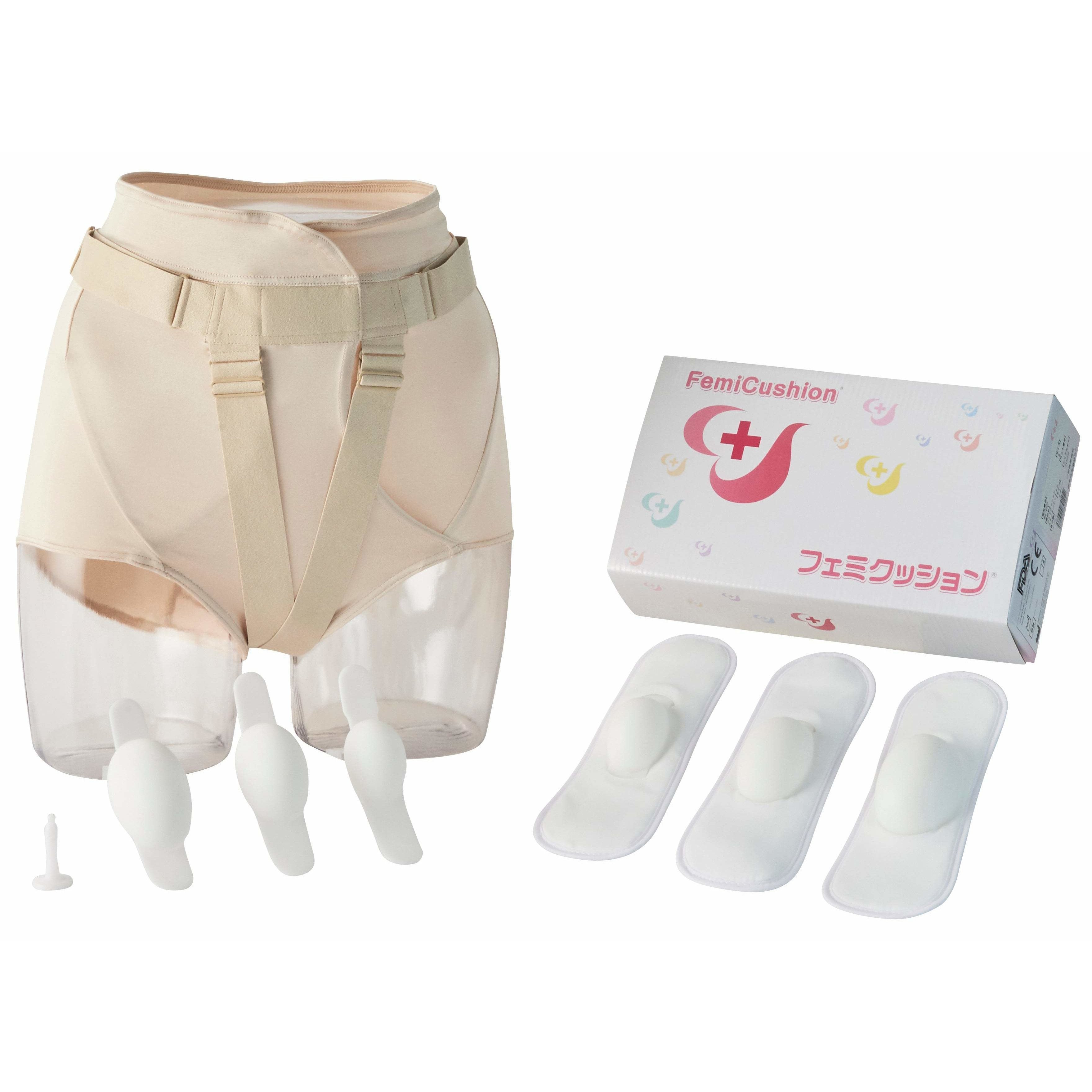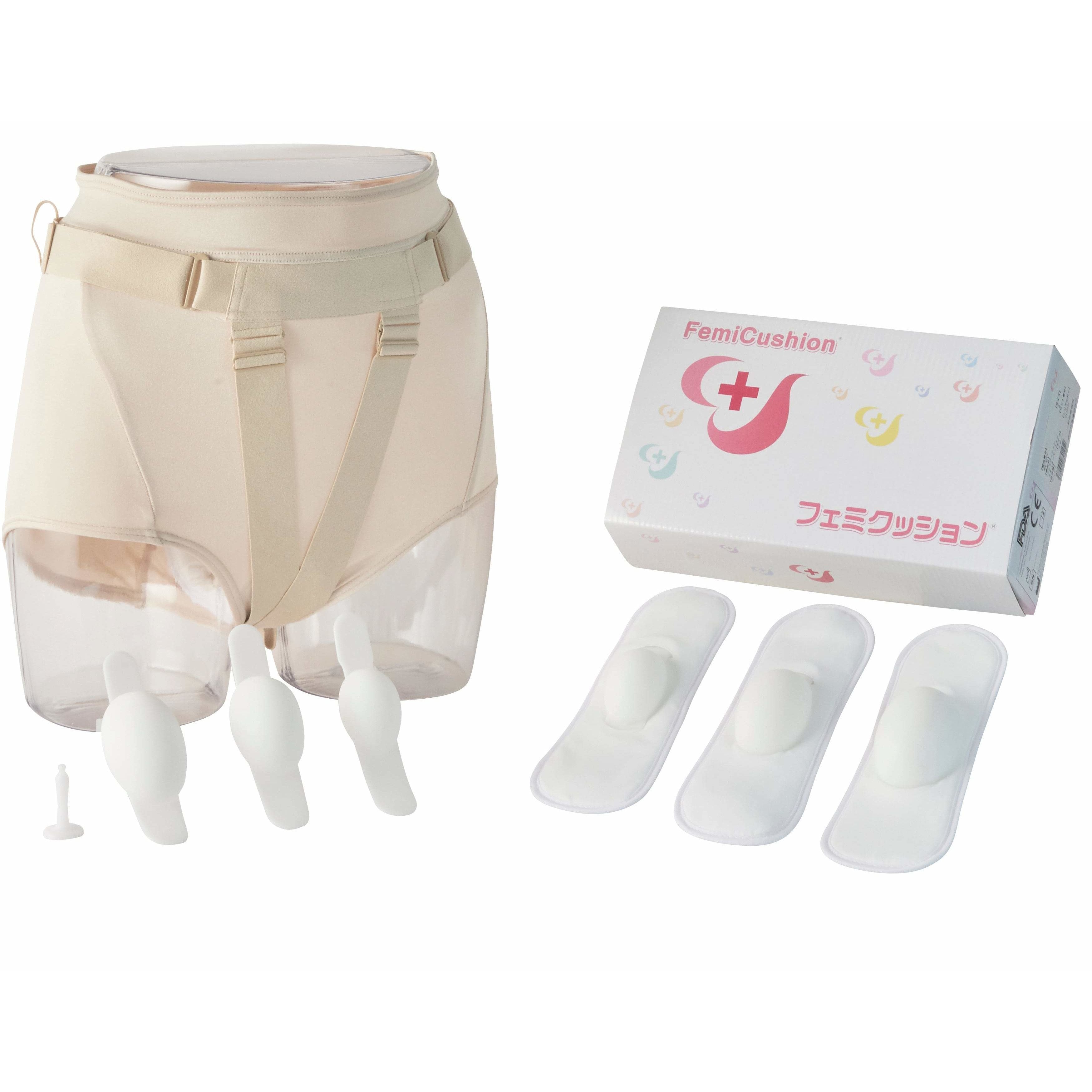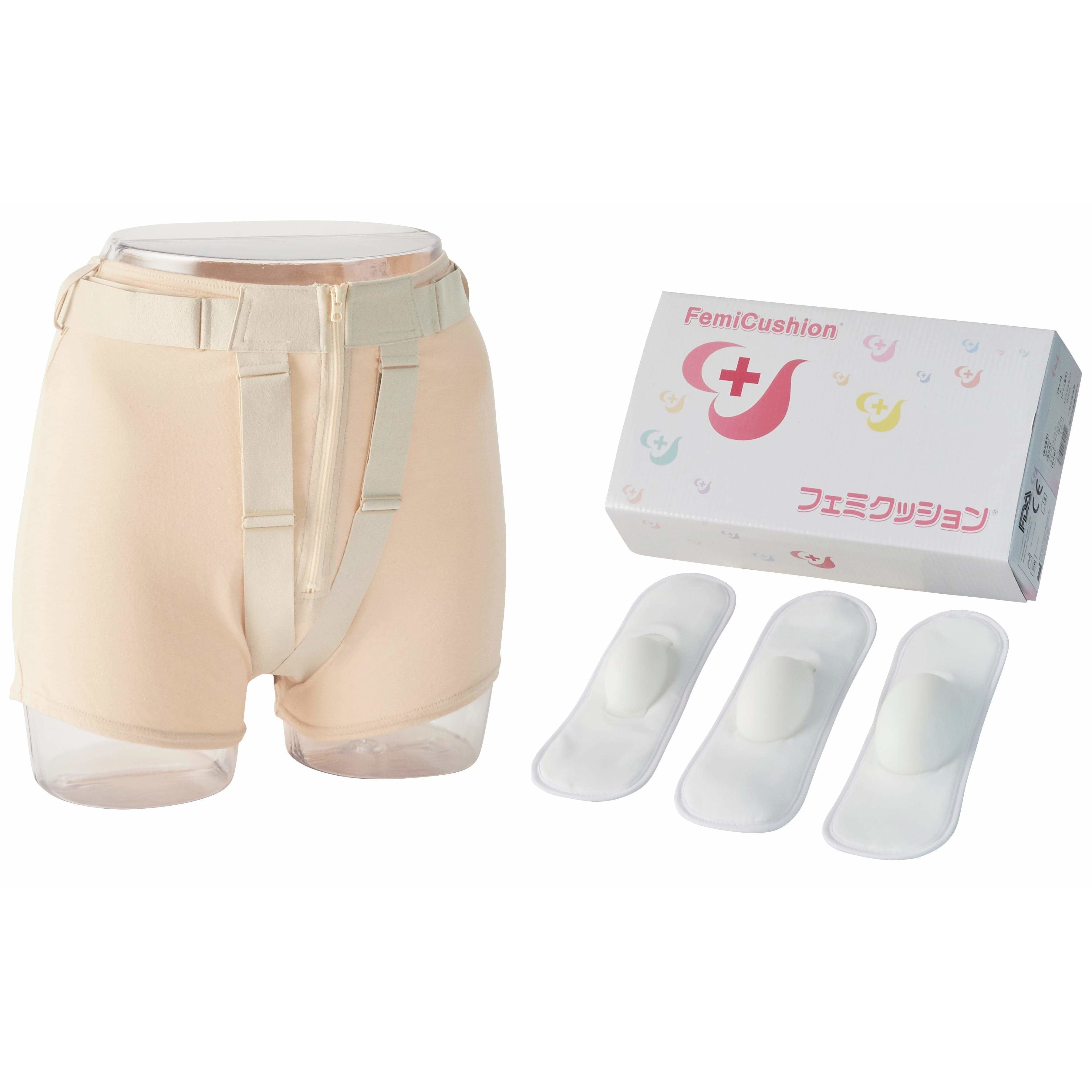Benefits and Side Effects of Pessary for Prolapse
Table of Contents

A pessary is a medical device designed to be inserted into the vagina to support the pelvic organs, which include the urinary bladder, urethra, uterus, vagina, cervix, and rectum. This device is typically used to manage urinary incontinence and pelvic organ or vaginal prolapse.
Pessaries can help women with these conditions to lead a life without surgery. However, pessaries need to be fitted by trained medical professionals, as improper fittings can be ineffective in improving symptoms and even cause vaginal damage. This article will discuss the pessary benefits and side effects and who can use it.
Benefits of Pessary Use
Pessaries are mainly of two types: support and space-fitting. They also come in different shapes and sizes to fit the unique anatomy of every woman. They are usually made of medical-grade silicone but are also available in plastic and rubber. Here are the benefits you can expect from using a pessary.
Improved pelvic organ support
Most doctors recommend pessary use for pelvic organ prolapse. Sometimes, due to stresses like pregnancy and childbirth, the supporting connective tissues of the pelvic organs lose their strength. As a result, one or many pelvic organs droop down from their original position and often protrude out of the vagina. This condition is called pelvic organ prolapse. The silicone device helps provide the necessary support to the organs and prevents them from slipping out of their position.
Reduction in symptoms of urinary incontinence
You can also use a pessary for urinary incontinence. With advancing age, or due to the stresses of pregnancy and childbirth, women can lose control of their bladder sphincters, leading to involuntary urine leakage. This can be overwhelming and lead to embarrassing situations. Pessaries can help support the bladder and urethra and significantly decrease the risk of leaks and improve overall bladder control.
Treatment of pelvic organ prolapse
Pessaries are often considered a great alternative for surgical treatment of pelvic organ prolapse. Usually, doctors recommend long-term use of pessaries for women who are who do not want to undergo surgery.
Increased sexual function
People with pelvic organ prolapse may report discomfort and pain during sexual intercourse. In advanced cases of pelvic/vaginal prolapse, the uterus or other pelvic organ may protrude out of the vagina, causing a mass of tissues to be hanging out, which can make sexual activities feel uncomfortable. By providing additional support to the pelvic organs, pessaries can help improve vaginal tone and reduce discomfort during intercourse.
Cost-effective alternative to surgery
Pessaries are not too expensive. However, they need to be cleaned or replaced every three to six months by a doctor to prevent infection and fistulae.
Side Effects of Pessary Use
Discomfort or pain
Pessaries can be uncomfortable or painful especially during to insertion and removal.
Irritation or discharge
If the pessaries are not cared for properly, there is a high risk of infection. Also, women allergic to silicone can experience a hypersensitive reaction to the device. Some patients may experience irritation, discharge, and unpleasant odor as a result. Another side effect of pessary is ulceration (open sore) in the vaginal walls which can cause blood discharge.
Pessary falling out
If not fitted properly, the pessary might fall out of its place, especially when you are physically active.
Infection and inflammation
Using pessaries can increase the risk of vaginal or pelvic organ inflammation. Pessary use can also make you more susceptible to bacterial or yeast infections. Thus, they need to be cleaned or replaced regularly and vaginal washing may be recommended.
Interference with sexual activity
Some women may find the pessary interfering with sexual activity or causing discomfort during intercourse. This can be due to the size or shape of the pessary or its placement within the vagina.
It is important to consider the shape, size, and material of the pessary before you start using them, as a wrong choice can increase the risk of side effects. Your doctor can help you understand how to choose a pessary suitable for your needs.
Who Should Use Pessaries?
Pessaries are primarily used by women who have pelvic organ prolapse or bladder control issues. It can be a non-surgical treatment option for women who want to avoid surgery or who cannot undergo surgery due to other health conditions. Sometimes, doctors also advise using pessaries during pregnancy or the postpartum period to reduce the risk of developing pelvic organ prolapse or urinary incontinence.
Benefits of using FemiCushion compared to pessary
FemiCushion is a non-invasive device specifically designed to conform to the anatomy of a woman’s body for prolapse support and relief. It features a soft and flexible cushion that makes it less likely to cause discomfort or irritation. Unlike a pessary, FemiCushion is not inserted into the body making it very safe to use with minimal side effects. Each kit offers different sized cushions allowing you to choose the one that best fits your body and specific condition.
FemiCushion is easy to put on and remove, making it possible for patients to have complete control over the device. It does not even require a doctor’s prescription or help to use it. It has minimal side effects compared to traditional pessaries and is suitable for women who do not wish to or cannot undergo surgery or are uncomfortable with pessary use. Women has reported to instant prolapse relief with using this device and it has allowed many other to return to an active lifestyle they once had before pelvic organ prolapse.
Pessaries are prosthetic devices that are inserted into the vagina to help treat pelvic organ prolapse and urinary incontinence. They require to be prescribed and fitted by doctors or other healthcare professionals. Pessaries are often considered to be a cheaper alternative to surgical treatments for vaginal prolapse. If you are diagnosed with pelvic organ prolapse or are experiencing urinary incontinence and surgery is not an option for you, consult your physician to see whether a pessary is right for you.
Medical Studies and Clinical Trials for FemiCushion
FemiCushion has been subjected to different medical studies and clinical trials, with encouraging results. Showa University Northern Yokohama Hospital conducted a study using magnetic resonance imaging (MRI) to assess the effects of FemiCushion on pelvic organ prolapse (POP) in twelve patients with severe stages 3 or 4 of the condition, aged between 56 to 84 with a median age of 72. The findings showed that FemiCushion effectively repositioned the pelvic organs involved in POP, offering promising relief.
In another study published in the Pelviperineology Journal, the Urology Department at the University of Campinas in São Paulo, Brazil, focused on women aged 60 to 79 who used FemiCushion consistently for three months. The study concluded that FemiCushion proved to be a successful option for enhancing the quality of life and managing symptoms related to pelvic organ prolapse in this particular age group.
Moreover, during the 18th Annual Fall Scientific Meeting, the Sexual Medicine Society of North America (SMSNA) presented an independent study that explored the benefits of using FemiCushion after pelvic organ prolapse surgery. The study indicated that FemiCushion played a role in aiding patient recovery and improving their overall quality of life post-surgery.
For more comprehensive information on these studies, interested individuals can click here. The positive outcomes from these investigations suggest that FemiCushion holds promise as an effective option for managing pelvic organ prolapse and enhancing the well-being of affected individuals.
Supervising Doctor of This Article

Koichi Nagao, MD PhD
Professor, Department of Urology, Toho University Faculty of Medicine
Director of Urinary tract reconstruction center, Toho University Omori Medical Center
Director of Reproduction Center, Toho University Omori Medical Center
Professor Nagao specializes in plastic surgery in the field of reproductive medicine. He completed eight years of plastic surgery training at Showa University before majoring in urology at Toho University. With his meticulous surgical techniques and careful examinations that combines urology and plastic surgery, Professor Nagao became a Board Certified Specialist with multiple associations including the Japanese Urological Association, the Japan Society for Reproductive Medicine, and the Japanese Society for Sexual Medicine.
The suggested Products

Kit FemiCushion EasyOpen Deluxe
$299.99

FemiCushion Standard Deluxe Kit
$299.99

Conjunto de FemiCushion Lite
$249.99




